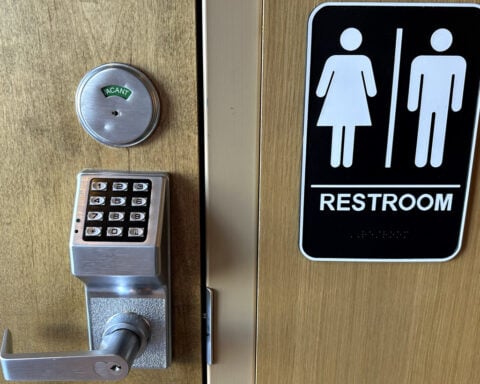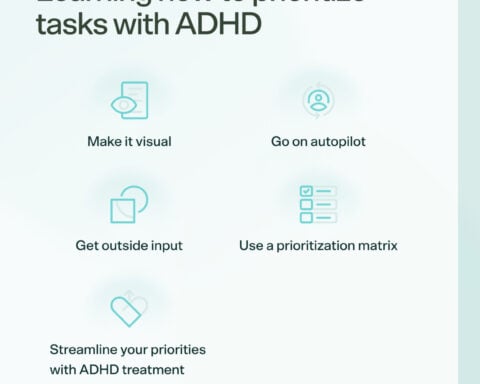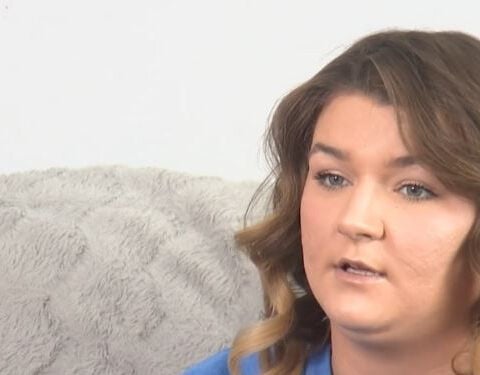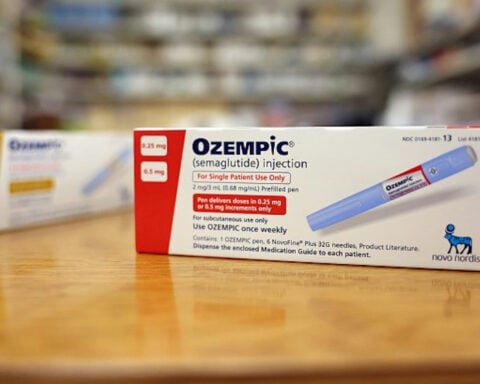Erin Coleman grew alarmed as her 14-year-old daughter increasingly used TikTok and Instagram not for entertainment or memes but to search for videos about mental health conditions. Over months of scrolling, the teen became convinced social media clips matched her own struggles and she likely had depression, ADHD, autism, extreme germophobia, and more.
“Each week, she would come up with another diagnosis," Coleman recalled. "If she perceives any resemblance between herself and someone else, she believes she possesses the same qualities."
Ultimately medical testing revealed Coleman’s daughter suffered mainly from severe anxiety rather than the entire catalogue. “Even now, she doesn’t always think [the specialists] are correct,” her mother said.
Coleman’s experience highlights concerns from parents and experts over teens leveraging sites like TikTok and Instagram to self-diagnose psychological or developmental issues. Mental health professionals told CNN they now frequently encounter adolescents convinced by social media content they have conditions like ADHD, autism, or multiple personalities.
“Teens are coming into our office with already very strong opinions about their own self-diagnosis,” said psychiatrist Dr. Larry Mitnaul. He traced the phenomenon to teens’ online searches and especially social media consumption. Mitnaul said he noticed a marked shift towards self-diagnosis around 2021.
Previously, teens would discuss symptoms with specialists to explore potential diagnoses or labels together. But Mitnaul found patients now often arrived holding firmly to their own self-guided determination. "When we discuss the various factors that led them to that conclusion, it is frequently due to the information they encounter and seek out on the internet," he stated.
Both parents and experts highlighted potential harm in teens gravitating to overly narrow or inaccurate self-categorization. "Mislabeling frequently restricts a teenager's social circle and self-identification," Mitnaul said.
Finding appropriate care also grows more difficult once teenagers cement strong self-diagnoses. Julie Harper struggled placing her daughter into autism testing given long waitlists in their Kentucky hometown."Did TikTok assist us in solving some problems or lead us on a fruitless pursuit?" she pondered. "I'm still unsure."
Experts pointed to the algorithms underpinning sites like TikTok and Instagram as part of the issue. As teens view more mental health testimonials or “symptoms checklist” videos, algorithms push similar content to their feeds. Psychologist Alexandra Hamlet argued the sites should modify these loops prompting excessive topical immersion.
A youngster may depend on a diagnosis to reduce others' expectations of their talents," she added, pointing out that labels also provide protection for insecure teenagers. Some parents indeed found self-diagnosis became a shield justifying poor performance or behavior.
Still, parents and teens reported benefits as well in improved understanding of conditions, reduced stigma, and expanded support communities. Amanda Clendenen, 35, said ADHD explanations on TikTok finally clarified lifelong struggles, pushing her to seek formal diagnosis. Some felt emboldened to ask for much-needed care.
But specialists emphasized teenagers lack the objectivity and life experience that helps adults contextualize social media’s mental health content. "Adolescents are more inclined to absorb the information and utilize it as a diagnosis prior to seeking guidance from a professional or an adult," Mitnaul stated.
The self-diagnosing spike comes amid a youth mental health crisis that saw depression and anxiety nearly double over the pandemic. With demand far outstripping available counselors, waitlists stretch months to access care. The shortage leaves struggling teens few options beyond social media and the Internet for mental health assistance.
Still, parents and experts agreed misguided self-labeling often does more harm than good. Teens like Coleman’s daughter grow so attached to assumed conditions they dismiss medical expertise questioning the self-determined diagnoses. In severe cases, inaccurate self-identification leads to inappropriate medication or stalled development.
Guidance urging social platforms to modify algorithms or add pop-up warnings provides limited relief. Parents and schools assume much responsibility for teaching digital literacy and emphasizing objective self-evaluation. Monitoring teens’ media use and modeling balanced social habits fall to caregivers first.
But authorities must continue highlighting outsized risks digital spaces currently pose to adolescents’ worldviews and self-images. Last spring the U.S. Surgeon General labeled social media’s impact so profoundly harmful it constitutes a youth public health crisis requiring urgent attention. As teens increasingly leverage sites highlighting narrow mental health conditions, addressing this crisis grows more critical than ever.

 Rep. Nancy Mace says she is considering a run for South Carolina governor
Rep. Nancy Mace says she is considering a run for South Carolina governor
 Stellantis will move forward on plan to build new midsize truck in Illinois
Stellantis will move forward on plan to build new midsize truck in Illinois
 US crude inventories likely fell last week, products seen up
US crude inventories likely fell last week, products seen up
 SLB's Russian assets valued at $600 million in 2024, unchanged from 2023
SLB's Russian assets valued at $600 million in 2024, unchanged from 2023
 Google wins UK injunction over YouTube block on Russian broadcasters
Google wins UK injunction over YouTube block on Russian broadcasters
 Mexico has not agreed to accept non-Mexican US asylum seekers, says president
Mexico has not agreed to accept non-Mexican US asylum seekers, says president
 Mike Tirico will be lead play-by-play announcer when NBC begins its NBA coverage next season
Mike Tirico will be lead play-by-play announcer when NBC begins its NBA coverage next season
 Carlos Beltrán is on the verge of Hall of Fame induction, and next year's ballot is wide open
Carlos Beltrán is on the verge of Hall of Fame induction, and next year's ballot is wide open
 Puma launches cost-cutting drive after 2024 net profit disappoints
Puma launches cost-cutting drive after 2024 net profit disappoints
 Teen Wellness
Teen Wellness







